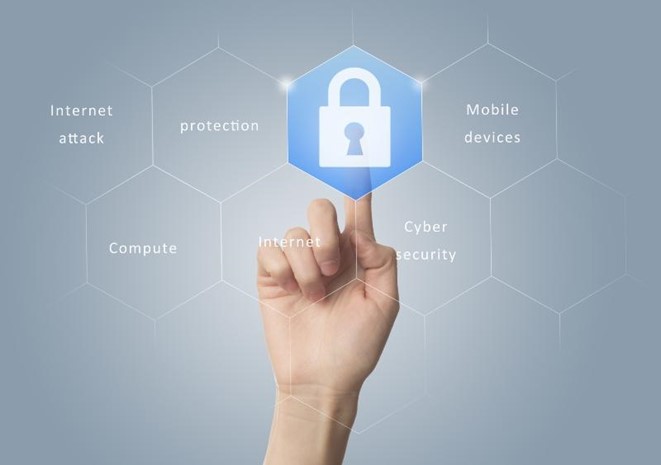Businesses prioritizing digital security are better prepared to face cybersecurity threats and thrive in an increasingly complex digital environment.
Here’s what it is and how our cyber intelligence platform for companies can help you maintain your company’s digital security.
What is digital security, and why is it essential for businesses?
Digital security refers to the practices and technologies employed to protect computer systems, networks, devices, and data from unauthorized access, cyberattacks, and damage. It concerns all actors in the digital environment, people and organizations. In an organization, digital security is crucial to safeguarding sensitive information, ensuring business continuity, and maintaining the trust of customers and business partners.
Protecting sensitive information is one of the main aspects of digital security in companies. Organizations handle large volumes of data, including customer personal information, financial data, intellectual property, and other confidential and sensitive information types.
A security breach that exposes this data will likely cause devastating consequences, including significant financial losses, damage to customer reputation and trust, and legal penalties for non-compliance with data protection regulations.

Benefits of Digital Security in Business Continuity
Beyond information protection, digital security is essential because it helps prevent operational disruptions. Cyberattacks like ransomware can stop an organization’s operations by blocking access to critical systems and data. This affects productivity and leads to economic losses due to the interruption of business activities. Implementing robust security measures helps minimize the risk of these attacks and ensures that the business continues to operate even amid an incident.
Customer trust and organizational reputation are also highly dependent on digital security. Consumers and business partners expect companies to protect their data adequately. Therefore, investing in digital security protects against cyber threats, strengthens the organization’s position in the market, and improves customer confidence.
Another critical factor in digital security is compliance with regulations and standards. In most countries, protecting sensitive data is a business obligation established by law. As a result, European organizations are subject to strict data protection laws and regulations, such as the General Data Protection Regulation (GDPR).
Failure to comply with these regulations results in significant penalties and legal actions. Implementing proper digital security practices ensures the company complies with these regulations, avoiding fines and protecting its legal reputation.
Finally, digital security is and should be considered an investment in the company’s future. As cyber threats evolve, organizations must be prepared to address new security challenges proactively. Investing in advanced security technology, training employees in secure practices, and developing robust security policies are essential steps in building a resilient security infrastructure capable of adapting to emerging threats.
Types of IT Security You Should Consider
Computer security extends through different types that have to be addressed together when establishing a strategy.
Application Security
It protects a company’s software and applications, from internal programs to mobile and web-based applications. It involves performing security testing to identify and fix vulnerabilities, implementing secure development policies, and using web application firewalls (WAF) to protect against attacks such as SQL injection and cross-site scripting (XSS).
Information Security
It focuses on protecting company data, both at rest and in transit. It includes data encryption, identity and access management (IAM), and implementing data retention and deletion policies. Protecting confidential information such as customer data or intellectual property is essential to prevent theft, subsequent malicious use, and industrial espionage.
Cloud Security
With the increasing use of cloud services, cloud security has become a priority for any organization. Businesses must ensure that cloud service providers adhere to rigorous security standards and that appropriate security controls are in place to protect data stored and processed in the cloud. This includes using identity and access management tools, data encryption, and continuous monitoring of cloud activities.
Network Security
Protecting the company’s network infrastructure against unauthorized access, attacks, and other threats involves firewalls, intrusion detection and prevention systems (IDS/IPS), and security solutions for wireless networks. In addition, segmenting the network to limit the scope of a potential attack and continuously monitoring network traffic for suspicious activity is essential.
Keys to establishing an effective digital security strategy
In addition to covering the different types of digital security, to ensure digital security in the company it is necessary to carry out a series of actions regularly:
Analysis of potential risks
Conducting a thorough risk analysis is the first step in establishing an effective digital security strategy. This involves identifying critical business assets, assessing potential vulnerabilities and threats, and determining the impact a security incident could have. Based on this analysis, resources and efforts can be prioritized in the most critical areas, and a risk mitigation plan can be developed.
Staff training
The human factor is often the weakest link in the security chain. Therefore, it is essential to train staff on secure practices and make them aware of cyber threats.
This includes training on identifying phishing emails, the importance of using strong passwords, and the need to report suspicious activity. A strong safety culture starts with knowledgeable and vigilant employees.

Security policies
Security policies establish the rules and guidelines employees must follow to protect company assets. These policies should cover aspects such as acceptable use of company systems, password management, handling sensitive data, and procedures to follow during a security incident.
Policies should be reviewed and updated regularly to reflect new threats and changes in the company’s technology infrastructure.
Security audits
Regular security audits are essential to check the effectiveness of the digital security strategy and detect possible failures. An advanced cybersecurity solution that allows constant auditing through continuous threat monitoring is highly recommended.
Digital security and well-being in the workplace
Digital well-being in the workplace is a comprehensive concept that encompasses protecting against cyber threats and creating a healthy and safe working environment in the digital sphere.
Digital security and employee well-being are closely linked. A secure environment allows employees to work more efficiently and with less stress, which means less risk from social engineering attacks.
- Digital security in the workplace. It involves protecting the company’s systems, networks, and data from cyberattacks. It includes using advanced security tools, such as firewalls, intrusion detection systems, and antivirus software, as well as implementing strict security policies. However, it is also crucial to consider the human factor in the equation. Training employees on good security practices, such as identifying phishing emails and using strong passwords, is critical to preventing security incidents.
- Digital employee well-being. This involves creating a work environment where employees can use technology safely and healthily, preventing digital burnout, promoting healthy work practices, and supporting employees in managing their digital time and resources.
- Culture of cybersecurity and digital well-being. Fostering a culture of cybersecurity and digital well-being within the organization is essential for digital security. It involves implementing policies and tools and creating an environment where employees feel supported and valued.
Cyber intelligence for digital security
Cyber intelligence is vital for companies’ digital security. By collecting and analyzing threat intelligence, companies anticipate attacks, mitigate risks, and respond effectively to security incidents. Implementing cyber intelligence protects digital assets and business continuity and strengthens resilience and adaptability in the ever-changing digital landscape.
Cyber intelligence provides deep, objective, and up-to-date insight into active threats and exposed vulnerabilities. This information is crucial for making informed decisions and developing effective security strategies focused directly on the organization’s vulnerabilities.
Cyber intelligence analytics involves using advanced technologies, such as machine learning and artificial intelligence, to process large volumes of data and extract accurate information about the organization’s digital security status and the actions needed to protect it from ongoing threats. These analytics make it possible to identify threats in real-time and predict future malicious activity.
A crucial aspect of cyber intelligence today is that it assesses and protects against the risk of third parties, one of the threats that are becoming more important due to the inevitable digital interconnection between organizations and their value chains.
Kartos reinforces your organization’s digital security strategy.
Kartos Corporate Threat Watchbots is the Cyber Intelligence platform for companies developed by Enthec. It helps your organization detect leaked and publicly exposed information in real-time.
Kartos continuously and automatically monitors the external perimeter to locate open gaps and exposed vulnerabilities in real-time, both within the organization and its value chain. Thanks to the issuance of immediate alerts, Kartos allows the organization to take the necessary remediation and protection measures to minimize or nullify the risk detected.
Contact us for more information on how Kartos can strengthen your organization’s digital security.


